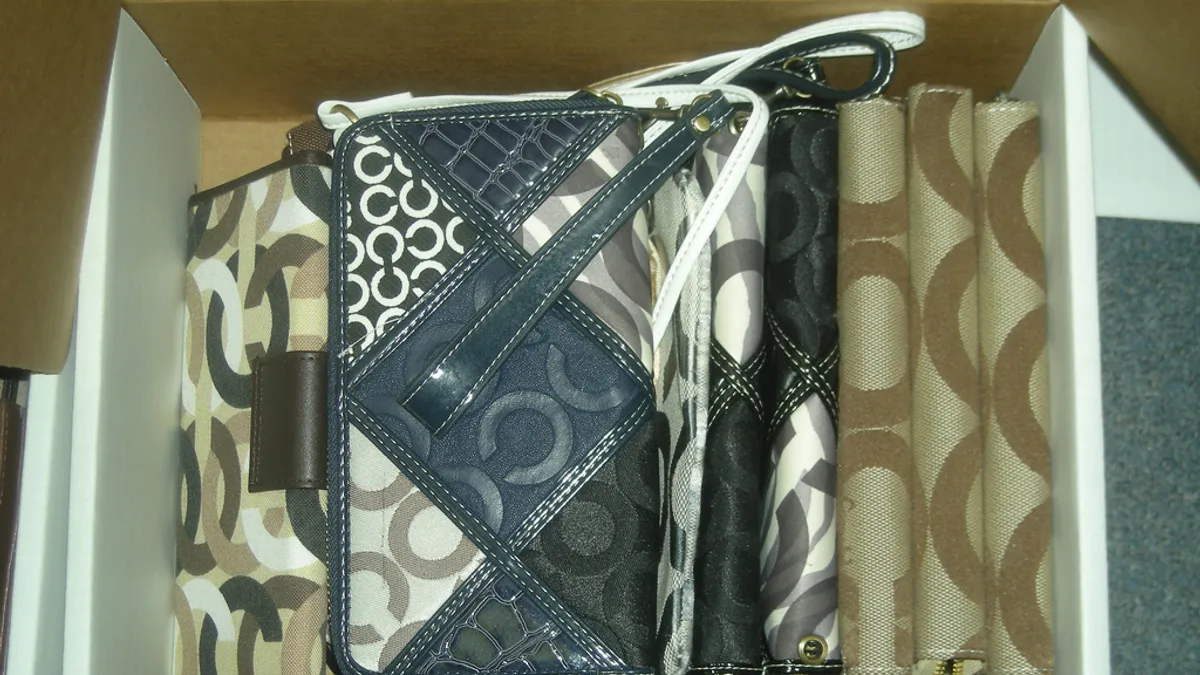Dive Brief:
- A "Declaration of Intent to Prevent the Maritime Transport of Counterfeit Goods" was signed in Brussels, reported Marine Link Tuesday. Signers include both Maersk Line and CMA CGM, two of the largest shipping lines within the industry.
- Less than 2% of the 500 million containers shipped annually are inspected, reported the United Nations Office on Drugs and Crime, opening up opportunity for counterfeiters to manipulate the supply chain for their criminal activities.
- The Declaration is a byproduct of complaints issued by brand owners, alleging that ships not only transport legitimate goods, but also fake versions of the same items. A report by Business Action to Stop Counterfeiting and Piracy (BASCAP) clarified the methods by which global supply chains are corrupted by counterfeit and pirated goods.
Dive Insight:
Supply chains are at risk of unintentionally supporting pirates and counterfeiters by relying on outside sources to inspect cargo, as well as by not making inspection a priority in quality control. If shipping lines provide their own independent inspection, with funding shared by shippers concerned about unauthorized copies, a reduction in thievery of this kind may result.
The counterfeiting of luxury items is a well-established problem, but the counterfeiting of medication has also grown in scale and danger, currently comprising a $75 billion market, according to the World Health Organization. Most recently, an influx of pain medications containing Fentanyl negatively impacted countless patients, including the musician Prince, who died in April of this year. Further, Fentanyl made its way into heroin supplies, causing a wave of overdoses and deaths in users.
Methods of discouraging counterfeit production and shipping include education about authenticity of products; enforcement of laws against counterfeiting; practical measures, such as labeling and packaging that is either difficult or impossible to replicate, and partnership with local law enforcement.














